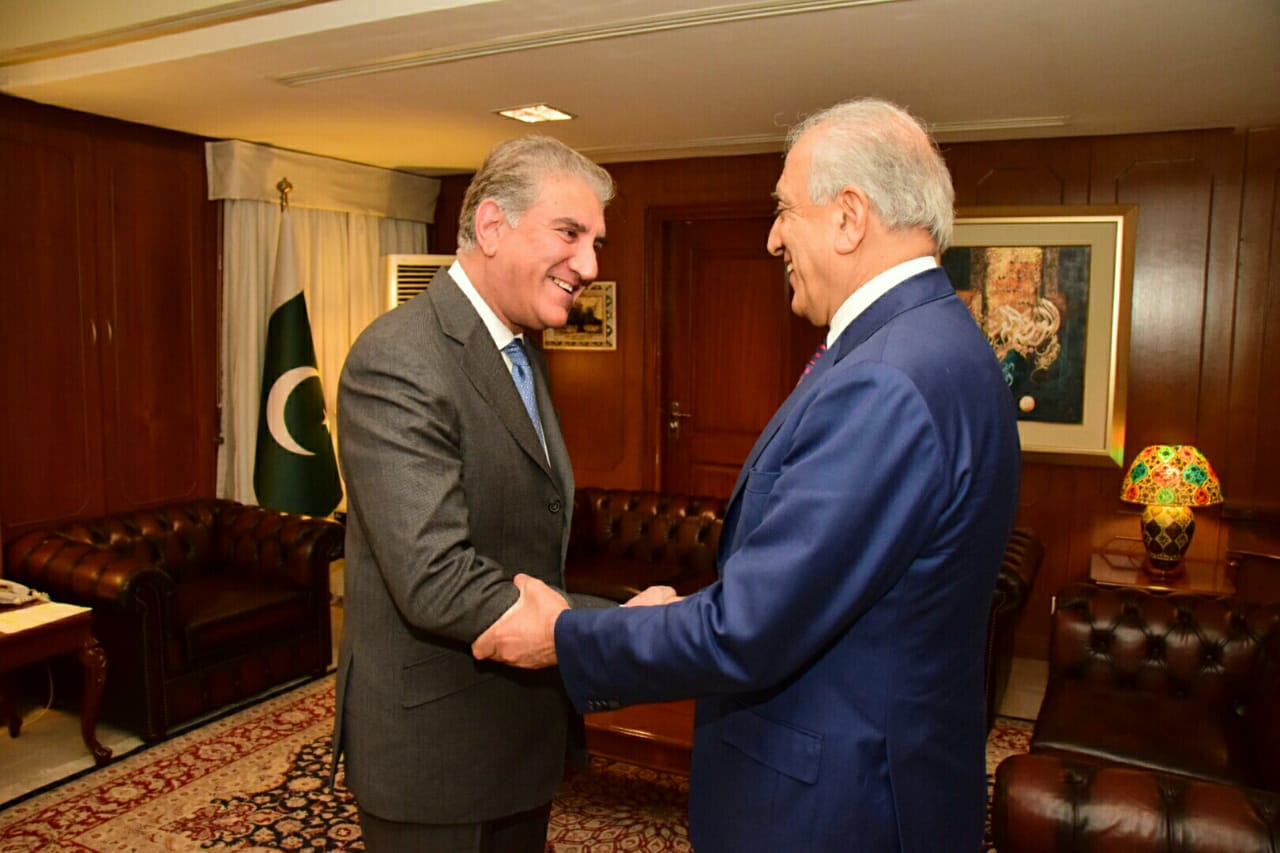
“Pakistan encourages all parties to the conflict to engage constructively as a shared responsibility,” said a statement issued here by the Foreign Office, a day after the US announced that it was set to resume talks with the Taliban in Doha shortly.
Pakistan, the statement added, has always maintained that there is no military solution to the conflict in Afghanistan. “An inclusive peace and reconciliation process, involving all segments of the Afghan society, is the only practical way forward.”
Pakistan’s reaction came just a day after the State Department announced that US chief negotiator Zalmay Khalilzad was traveling to Kabul and Doha this week.
“In Doha, Ambassador Khalilzad will rejoin talks with the Taliban to discuss steps that could lead to intra-Afghan negotiations and a peaceful settlement of the war, specifically a reduction in violence that leads to a ceasefire,” the statement added.
The resumption of talks was on the cards since the US and Taliban have been talking to each other informally. Pakistan is believed to have played a key part in persuading the two sides to restart the process.
In September, the two sides were close to signing a peace deal but US President Trump pulled out of the process at the last minute citing Taliban’s continued attacks targeting American soldiers.
Before pulling the plug, Trump was scheduled to hold a secret meeting with an Afghan Taliban delegation at the Camp David. He, however, cancelled what would have been unprecedented meeting just on the eve of anniversary of 9/11 attacks, which Washington said planned and originated from Afghanistan.
The reason Trump had a second thought of signing peace deal was the criticism he faced both at home and even from the Afghan government that the Taliban had offered little concessions in return of US agreeing to withdraw troops.
The draft agreement was to deal with the timeline of US troops withdrawal while a commitment from the Taliban of not allowing the Afghan soil to be used by terrorist groups against other countries.
However, there was no word either on the ceasefire or intra-Afghan dialogue in that proposed deal. After walking out of the process, Trump then ordered stepped up campaign against the Taliban in order to talk to them from a position of strength.
Pakistan, which facilitated the 9-month long painstaking peace process in Doha, has pushed for the resumption of talks since it believes that use of force by either side would not resolve the lingering conflict.
In October, it hosted an Afghan Taliban delegation led by Mullah Abdul Ghani Baradar. It also arranged a meeting between the US special envoy and the visiting Taliban delegation. There were no details shared by either side of that meeting held in Islamabad but sources familiar with the development that the focus of discussion on the ceasefire or at least reduction of violence by all sides.

1722586547-0/Untitled-design-(73)1722586547-0-165x106.webp)


1732326457-0/prime-(1)1732326457-0-165x106.webp)












COMMENTS
Comments are moderated and generally will be posted if they are on-topic and not abusive.
For more information, please see our Comments FAQ